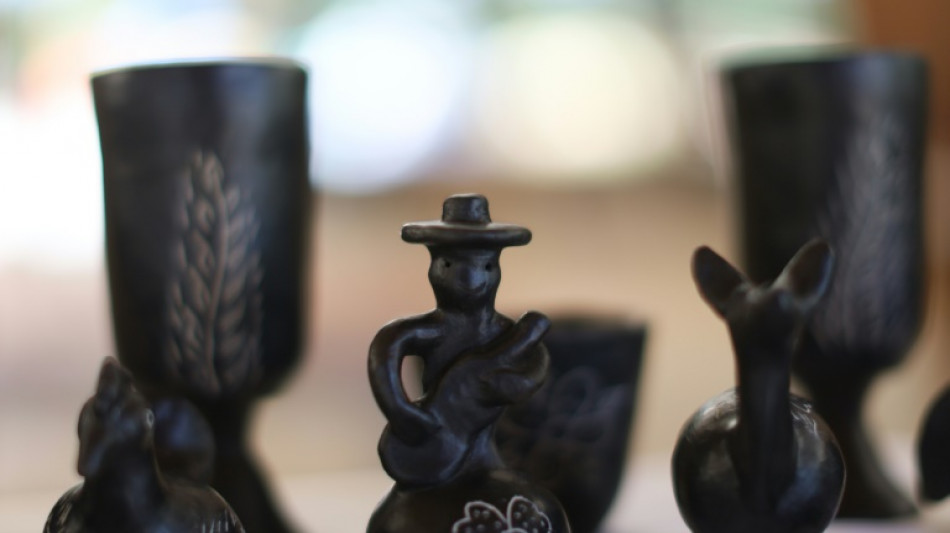
Chile ceramics, Colombian wisdom get UNESCO heritage status

Two social traditions from South America were honored Tuesday as UNESCO recognized the rapidly disappearing skill required to make black pottery in Chile and the ancient knowledge of Colombian Indigenous groups as intangible cultural heritage practices.
The United Nations' cultural agency wrote on Twitter that it had added the centuries-old ceramics skills of mainly women in the Chilean towns of Quinchamali and Santa Cruz de Cuca to its list of cultural heritage in need of urgent preservation.
Techniques to make the black earthenware, which is adorned with white accents, are applied to functional items such as cups and plates and to more decorative items such as figurines of farm animals or rural people.
According to the UNESCO nomination form, there are only five male and 74 female potters currently carrying on the tradition, many of whom are elderly, meaning that in 10 years, there would only be 12 active potters under 60.
The knowledge is passed down through women.
Another threat to the tradition is the planting of pine and eucalyptus forests in the area, making it difficult for the potters to secure the clay and guano needed to produce the ceramics.
Being on the List of Intangible Cultural Heritage in Need of Urgent Safeguarding will allow Chile to access financing to preserve the tradition.
It also gives international recognition to an important cultural practice.
"Being added to the Urgent Safeguarding list means the ceramic tradition of Quinchamali and Santa Cruz de Cuca will endure, but it also allows me to secure my future as a potter," Nayadet Nunez, 31, told AFP.
- Ancestral Colombian knowledge -
UNESCO also granted intangible cultural heritage status to an ancestral system of knowledge held by four Indigenous Colombian communities who live in the world's highest coastal mountain system.
UNESCO said that the Arhuaco, Kankuamo, Kogui and Wiwa peoples had essential knowledge to "take care of mother nature, humanity and the planet."
Colombia's culture ministry said that, as tourism grows in the mountainous area, the Indigenous groups "play a fundamental role in guaranteeing the protection of the eco-system ... and avoiding the loss of their cultural identity."
The four groups, distinct but related, live on the slopes of the pyramid-shaped Sierra Nevada de Santa Marta in northern Colombia and dress in traditional white clothes and woven straw hats.
"The System of Knowledge entails an extensive understanding of the territory, through which the sea, rivers, stones, mountains, and snow-capped peaks are recognized as the totality of a single living body," read the nomination form.
To its inhabitants, the Sierra Nevada is the center of the world, surrounded by an invisible "black line" taking in the sacred sites of their ancestors, according to Survival International, an NGO that defends Indigenous rights.
They believe it is their role to maintain the balance of the universe.
burs-fb/caw
T.Galgano--PV
